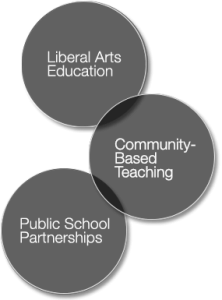I n October, we had a post on Alternative Paths to the Classroom giving information and deadlines on programs like Teach for America and City Year. Another program, Bard MAT Los Angeles, is advertising directly on I-Link with an early action deadline of January 15 (they will continue accepting applications until March 15). According to the website,
n October, we had a post on Alternative Paths to the Classroom giving information and deadlines on programs like Teach for America and City Year. Another program, Bard MAT Los Angeles, is advertising directly on I-Link with an early action deadline of January 15 (they will continue accepting applications until March 15). According to the website,
The Bard MAT in Los Angeles is a community-based credentialing and degree program offering advanced study in pedagogy and academic disciplines, close faculty mentoring, and support for new or early career educators who accept employment or service opportunities in California schools or community organizations. This two-year program includes a 14-month pathway that awards a credential in Social Studies, English, Science, or Math prior to the start of the second year.
For people who have decided late in their college career that they want to go into teaching, or who decided to delay getting a teaching credential until after graduation, programs like this provide a path to a career in education.
For those who are ONLY considering programs like this because they don’t have any better ideas, it’s an arduous and soul-draining path to a paycheck. Come talk to me about possible alternatives when you get back to campus: kwilcox@illinois.edu.

 Whether your career plan involves grad school, finding an internship, or applying for jobs, the prospect of rejection looms.
Whether your career plan involves grad school, finding an internship, or applying for jobs, the prospect of rejection looms.
 n October, we had a post on
n October, we had a post on